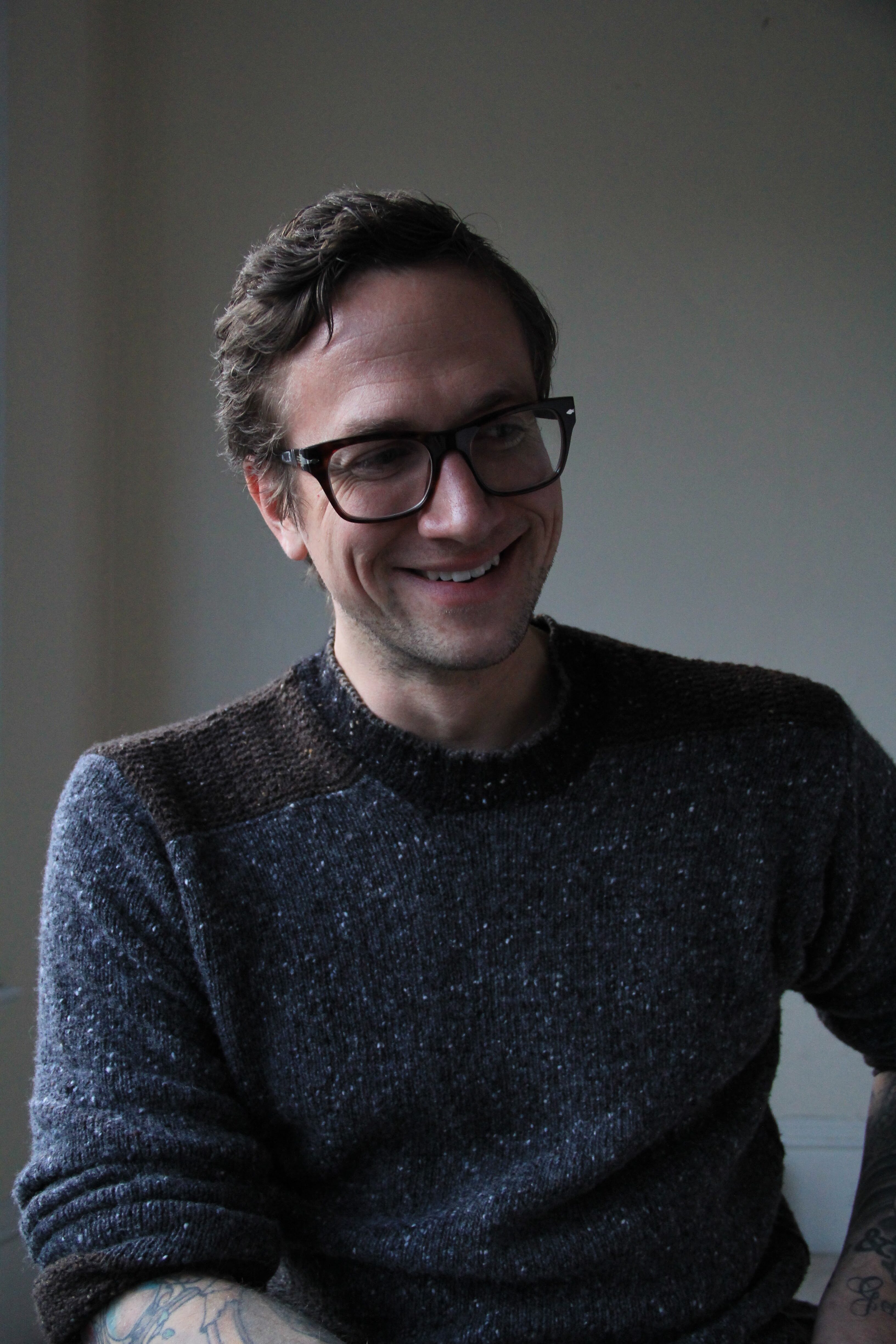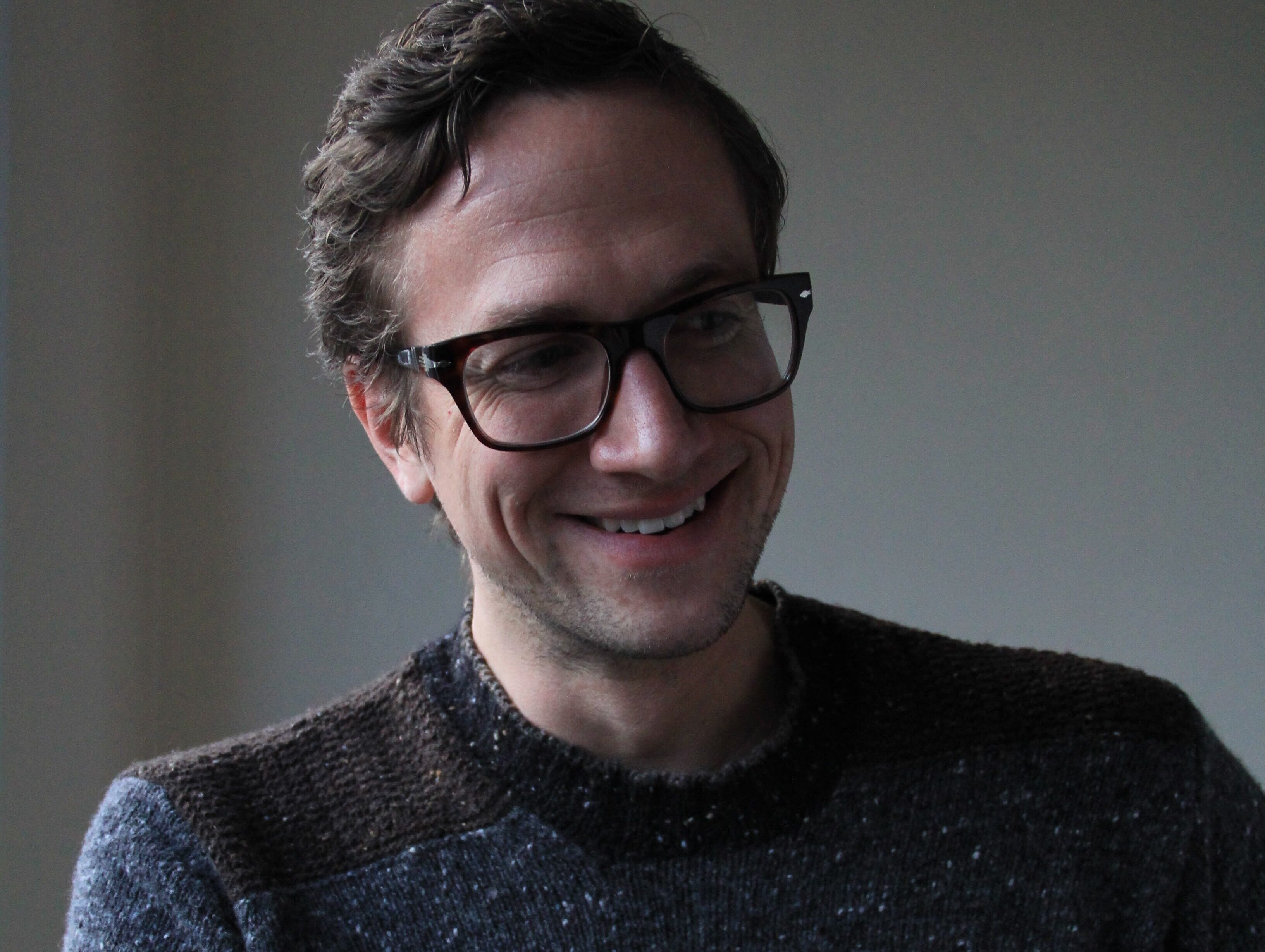Interview
What do you write?
Anything and everything I find time for. I’m currently on a seventh draft of my first—so far—novel length work. But I also write creative nonfiction, flash fiction, and short fiction. If you dig far enough back (don’t), you can find some bad poetry of mine online. A mentor from my undergrad, who’d read both my poetry and my prose, told me my strengths were with the latter, not the former, and to focus all of my creative energy on prose instead of dividing my focus. This was among some of the better advice I’ve received. So, no more John Christopher Nelson poems.
Is there an author or artist who has most profoundly influenced your work?
I adore everything Annie Proulx has written. Even her cookbooks. She is magnificent and every line of her prose is perfection. Meeting her at a recent reading / Q&A, during which she signed my copy of her latest novel, was one of the only times in my life during which I’ve been truly star struck. When I read Proulx, it pushes me to improve my writing. The tone, sensibility, and atmosphere of Naturalism in her work are all components I strive to incorporate in my stories.
Why did you choose Stonecoast?
I originally applied to Stonecoast because the program offered a popular fiction option, which is interesting because I ended up choosing the fiction genre track. There was so much enthusiasm on the other end of the phone when I received my acceptance call, I knew immediately that Stonecoast would be a good fit for me and for my writing.
What is your favorite Stonecoast memory?
Among my five residencies, there are too many lovely moments to name or number. But, above all else, I appreciate the memory of the open mic when I read one of Brady Kamphenkel’s poems, and he read an excerpt from one of my short stories. That, and rooming with him for three of my five residencies, including Dingle, Ireland. I gained a lot from my experience at Stonecoast, including so many friends I love dearly, but I’ve found a lifelong best friend in Brady.
What do you hope to accomplish in the future?
Continuing to write feels too obvious, but it’s the first thing that comes to mind. I want to remain actively engaged with the world around me, in the lives of those who are important to me, in the lives of people who are new to me, and in the writing world. Any opportunity I have to help someone else, whether it be reading their work and giving them feedback, giving somebody a ride from the airport or a place to sleep for the night when they’re in town, spotting someone money when they’re between bills, or helping a stranger in some way. I guess that sounds kind of vague and touchy-feely, but making the decision to get sober has made me think about my role in the lives of others. I want to make meaningful, kind choices that put others before me and balance out my previous selfishness. Also, I’m nowhere near finished with getting tattooed.
If you could have written one book, story, or poem that already exists, which would you choose?
Hopscotch by Julio Cortázar. The brilliance with which every word of every line is composed is astonishing and awe-inspiring to me, in as true a sense as I interpret the word “awe.” There is simply no other novel like it. Not even close.
Featured Work
Hum
There are no dog days in the Coachella Valley. There is relentless heat. Coarse and dry, it begins in April and lasts through November. This was the end of August, when dog days were concluding elsewhere.
I had not seen you since Good Friday, when I canceled our plans for Easter.
I waited on the sidewalk – high nineties at ten at night – for half an hour in anticipation of your arrival. From Santa Monica, it was a three-hour drive for you. I was sweating through the shirt I purchased that afternoon.
You parked a few houses down, and emerged from the many shadows of the unlit street. Persimmon hair, red cotton dress, and pale legs lit out from the dark at different volumes. Neither of us spoke in the thick night, cicadas whirring around us.
We hugged for a length of time that would sound like an exaggeration, squeezing each other as though we knew one of us was about to die, or was already dead.
The sun may have risen and set again. I do not know.
Tonight, too long after you drove to the desert to see me, we have not spoken in nearly three years.
You told me once, early on, when I took you for granted in a different way than I took you for granted at the end, that you loved me so much you could break into a million pieces. I judged you for saying so. I laughed at the text message.
But I understand now.
I didn’t know it then, but holding you in front of 73133 Guadalupe Avenue in Palm Desert, a chorus of bugs replacing what might have been the hum of streetlights in a different residential neighborhood, was the moment.
Pieces fall away from the whole each time I remember sharing the street and the dark and the heat with you.
 John Christopher Nelson’s youth was split between ninety-four acres of chaparral in East County San Diego and a defunct mining town in the Nevada high desert. He is a graduate of the Stonecoast MFA in Creative Writing, where he has served a variety of roles on the Stonecoast Review. He earned his BA in American Literature from UCLA, where he was executive editor of Westwind. His work is forthcoming in The New Guard and has appeared in Chiron Review, Able Muse, Indicia, Stone House: A Literary Anthology, The Matador Review, and Paper Tape Magazine. He currently lives in West Seattle.
John Christopher Nelson’s youth was split between ninety-four acres of chaparral in East County San Diego and a defunct mining town in the Nevada high desert. He is a graduate of the Stonecoast MFA in Creative Writing, where he has served a variety of roles on the Stonecoast Review. He earned his BA in American Literature from UCLA, where he was executive editor of Westwind. His work is forthcoming in The New Guard and has appeared in Chiron Review, Able Muse, Indicia, Stone House: A Literary Anthology, The Matador Review, and Paper Tape Magazine. He currently lives in West Seattle.
